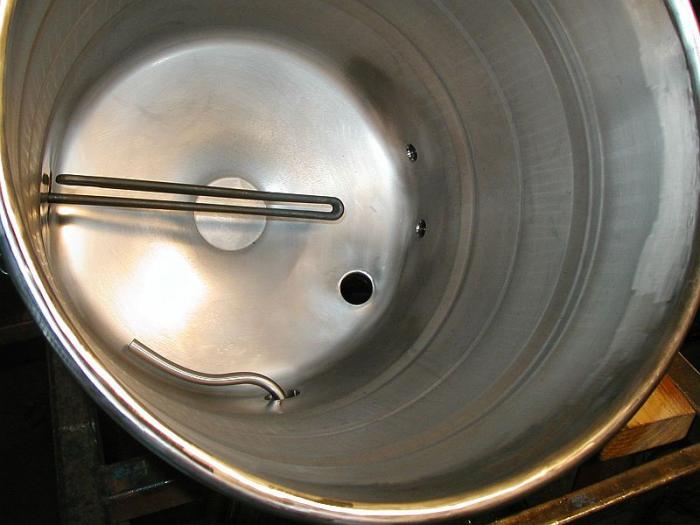I need opinions from anyone well versed in stainless and particularly welding.
I had a local welder weld some fittings into new 100 quart update international pots. The first contact with water was when I was passivating them early October. I used about a 3% concentration of nitric/phosphoric acid. - Loeffler KMS-10 which is formulated for this. I noticed almost immediately after finishing the passivation and flushing that every weld, particularly where ground, was developing what appeared to be rust. When I got home I tried to scrub the heck out of all the areas with Barkeeper's Friend. At first this seemed to work. But I'd come back the next day, and the rust would be right back.
So after some reading, I found out the most likely scenario is that they introduced steel somewhere along the lines. Probably the grinding wheel - or maybe a brush. I also read the only way to fix this is chemically - that no amount of mechanical treatment will solve it. So I decided to run KMS-10 straight - which is basically around 40% phosphoric acid, and 15% nitric acid. All the reading suggested this combination should take care of removing the iron. So I decided to do a test soak - I soaked it for about 50 minutes. At first it was very promising - I saw no signs of rust. But after I got all the acid out and flushed it well, about 5 minutes and this is what I saw:

If my eyes aren't deceiving me, I see pitt corrosion. And not to mention it took almost no time for the rusting to start again. Anyone else agree with this? Any other comments on anything else I can try? At this point I'm close to throwing in the towel and calling the pots unusable. Just to reiterate - the pots have never been used!
Thanks in advance.
I had a local welder weld some fittings into new 100 quart update international pots. The first contact with water was when I was passivating them early October. I used about a 3% concentration of nitric/phosphoric acid. - Loeffler KMS-10 which is formulated for this. I noticed almost immediately after finishing the passivation and flushing that every weld, particularly where ground, was developing what appeared to be rust. When I got home I tried to scrub the heck out of all the areas with Barkeeper's Friend. At first this seemed to work. But I'd come back the next day, and the rust would be right back.
So after some reading, I found out the most likely scenario is that they introduced steel somewhere along the lines. Probably the grinding wheel - or maybe a brush. I also read the only way to fix this is chemically - that no amount of mechanical treatment will solve it. So I decided to run KMS-10 straight - which is basically around 40% phosphoric acid, and 15% nitric acid. All the reading suggested this combination should take care of removing the iron. So I decided to do a test soak - I soaked it for about 50 minutes. At first it was very promising - I saw no signs of rust. But after I got all the acid out and flushed it well, about 5 minutes and this is what I saw:

If my eyes aren't deceiving me, I see pitt corrosion. And not to mention it took almost no time for the rusting to start again. Anyone else agree with this? Any other comments on anything else I can try? At this point I'm close to throwing in the towel and calling the pots unusable. Just to reiterate - the pots have never been used!
Thanks in advance.






